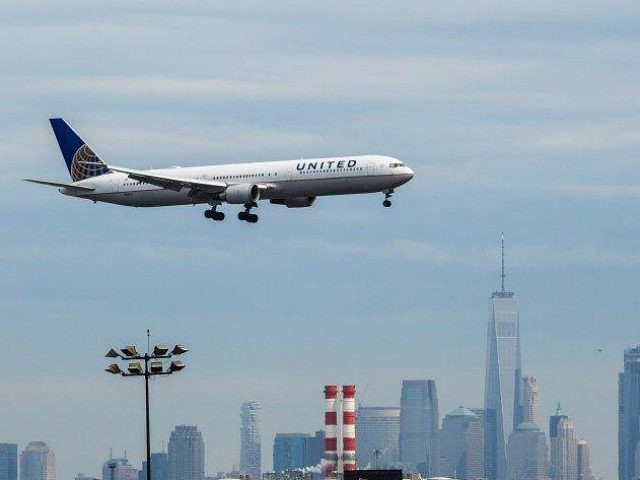The Wall Street Journal noted on Monday that several U.S. airlines appear to be resisting Beijing’s demand to change their websites to describe Taiwan as part of China. The Trump White House denounced such demands as “Orwellian nonsense” over the weekend.
China gave three dozen international carriers just 30 days to change references to territories like Hong Kong, Macau, and Taiwan in April, or else face serious consequences for “violating the law of China” that could include regulatory hassles or even the revocation of their licenses to operate.
A heavy-handed push to impose Chinese speech codes on the rest of the world led to Delta apologizing for listing Taiwan and Tibet as independent countries in January. The Mariott hotel chain was pummeled even harder for a similar offense, while Mercedes-Benz was assailed for daring to quote the Dalai Lama in an automobile advertisement.
As China’s deadline for the airlines approaches, the Wall Street Journal found a surprising degree of resistance to Chinese “sharp power” – the use of economic leverage to exert a form of influence somewhere between the hard power of military threats and the soft power of diplomacy:
In response to Chinese pressure, British Airways and Deutsche Lufthansa AG now refer to “Taiwan, China” and “Hong Kong, China” on their websites.
In contrast, U.S. airlines are among those that still make no link between Taiwan and China. United Airlines, for example, refers to “Taipei, TW” while Delta offers “Taiwan, TW.”
…
A spokeswoman for American Airlines Group Inc. confirmed the airline was among those to receive a letter from Chinese authorities, but declined to say how the airline would respond. Delta and United didn’t immediately respond to questions.
The WSJ notes that Chinese passengers probably do not see the geopolitical references the government wants to be changed, since flights to Hong Kong, Macau, and Taiwan are usually handled through international instead of domestic terminals.
China has not limited its censorship demands to material aimed at Chinese citizens in the past; it often demands changes in websites aimed at international audiences, and even online publications Chinese citizens technically cannot read, because they are banned in China.
White House Press Secretary Sarah Huckabee Sanders condemned China’s bullying of U.S. airlines on Saturday:
President Donald J. Trump ran against political correctness in the United States. He will stand up for Americans resisting efforts by the Chinese Communist Party to impose Chinese political correctness on American companies and citizens.
On April 25, the Chinese Civil Aviation Administration sent a letter to 36 foreign air carriers, including a number of American carriers. This notice demanded that carriers change how “Taiwan,” “Hong Kong,” and “Macao” are identified on their websites and in their promotional material so that the references fall in line with the Communist Party’s standards.
This is Orwellian nonsense and part of a growing trend by the Chinese Communist Party to impose its political views on American citizens and private companies.
China’s internal Internet repression is world-famous. China’s efforts to export its censorship and political correctness to Americans and the rest of the free world will be resisted.
Sanders stressed that respect for the “broad freedom private companies have in their interactions with customers” is “essential for a robust global marketplace.” She called on China to “stop threatening and coercing American carriers and citizens.”
“No matter what the U.S. side says, nothing will alter the objective fact that there is only one China in the world and that the Hong Kong, Macau, and Taiwan regions are inseparable parts of Chinese territory,” the Chinese Foreign Ministry shot back on Saturday.
“It must be pointed out that foreign firms doing business in China should respect China’s sovereignty and territorial integrity, abide by Chinese laws and respect the national feelings of the Chinese people,” Foreign Ministry spokesman Geng Shuang added.

COMMENTS
Please let us know if you're having issues with commenting.